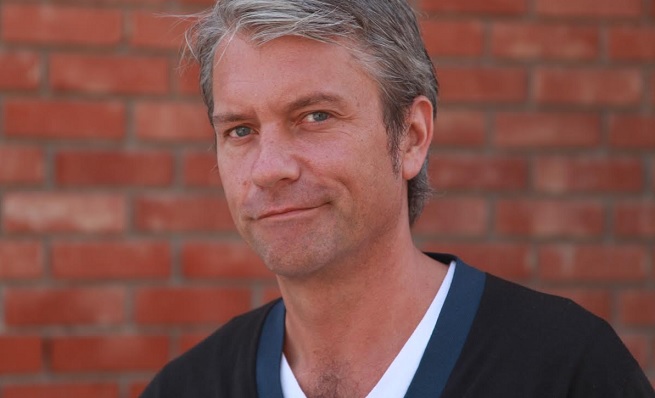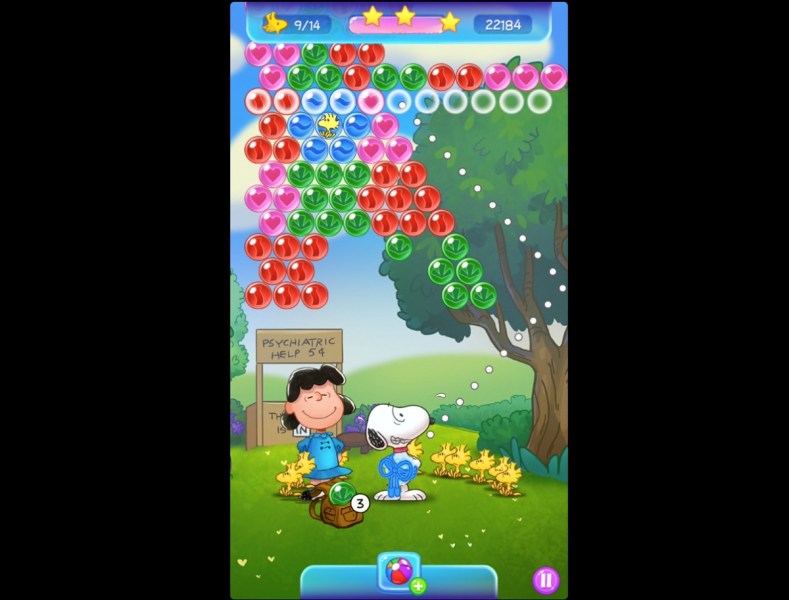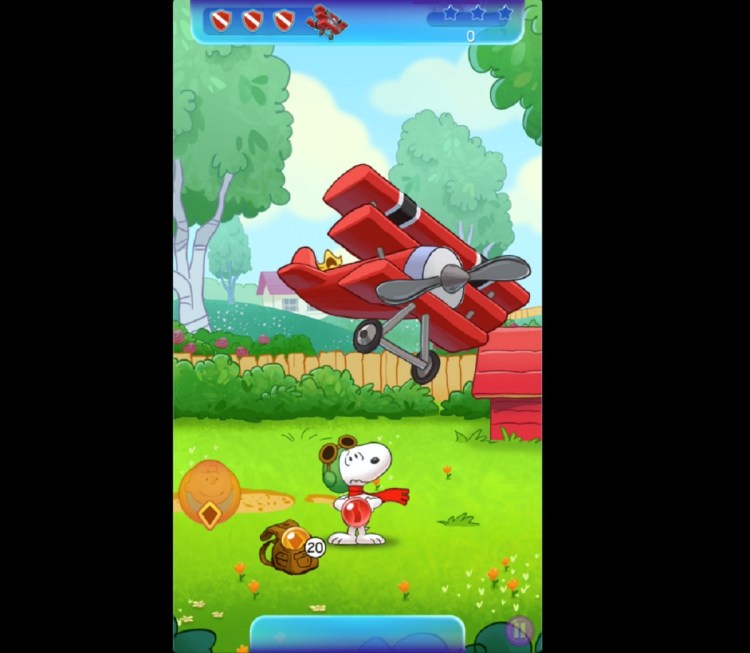Chris DeWolfe did OK as a founder of MySpace. But it didn’t turn out to be Facebook. But he can’t complain. DeWolfe is now CEO of Jam City, a Los Angeles company that has become one of the most powerful mobile game companies in the world.
Today, the company is launching Family Guy: Another Freakin’ Mobile Game, as a simple match-3 title that uses the Family Guy characters and its humor. It is one of six titles the company plans to launch this year, and DeWolfe believes it will be big because it uses humor pulled directly from the popular television show’s writers.
DeWolfe’s company is thriving on casual games like Cookie Jam, Panda Pop, and Family Guy: The Quest for Stuff. It has more than 50 million players a month, and its titles have been downloaded more than 800 million times. I caught up with DeWolfe recently for an interview in San Francisco.
He said the company reaped more than $300 million in revenue in 2016, and that growth is targeted at $450 million in 2017. Hopefully, some of that freakin’ money will come from the new Family Guy game, as well as the recently launched Snoopy Pop title. Here’s an edited transcript of our interview.

Above: Chris DeWolfe of SGN
Chris DeWolfe: We’ve had some seminal moments in each of the last several years of the company, from beefing up our development capabilities to seeing the fruits of that in 2014, with Cookie Jam being game of the year, and Panda Pop exploding to become the number one bubble-popping game. In 2015 we brought in a $130 million investment from NetMarble. This last year we made our acquisition of TinyCo.
This year is going to see six game launches. Each of the last two years, we had only one game launched. Last year we launched Genies and Gems, which is steadily going up the charts. It’s doing very well. The year before was Juice Jam. We’ve said publicly that we have another Family Guy game coming out. We also have a Peanuts game. About half of our games, moving forward, will use third-party IP. TinyCo especially does a great job interpreting the television format into mobile gaming. We’re working very closely with the writers at Fuzzy Door that work on Family Guy. They riff back and forth with our writers on Second Street, as well as the TinyCo writers. That works out very well. Likewise, the TinyCo guys work closely with David X. Cohen and Matt Groening on Futurama.
It’s important that we choose games where we’re working closely with the keepers of the brand to make sure it’s an authentic experience for the end user. The number one customer support request for the Family Guy game was actually for TinyCo to make a Futurama game.

Above: Snoopy Pop
GB: Do you see that as an advantage of being in Los Angeles, closer to the IP owners?
DeWolfe: I don’t think it’s essential, but I think it’s a reason we’ve done four games with Fox. Fox bought MySpace, so I have a close relationship with a lot of folks there. My co-founder was actually on the acquiring team that bought MySpace. We’re close with Fox, Disney, Warner Bros. We see them all on a regular basis. If we need to work something out, it’s only an hour’s drive, like everything in Los Angeles.
It’s an advantage, because you have more constant contact. There’s more serendipity, running into folks that may have worked on a piece of content or own content. There might be an up and coming celebrity who could be very interesting that you hear about first in Los Angeles. You’re more likely to have a deeper understanding of the cultural zeitgeist in Los Angeles. But the same is true in San Francisco. More than half of our employees are in San Francisco. There are big advantages to having a major nexus here. This is the talent center of the world for mobile gaming.
We like to be spread out. It’s good to have our headquarters in Los Angeles, great studios in Los Angeles, and then the majority of our game development teams here in San Francisco, where you have that rich heritage. Then we have San Diego folks who have a rich heritage from Sony. At one time or another, virtually every employee in our San Diego office spent time at Sony. There are also a lot of Zynga offices down there as well. We’ve gotten the best of the best in every city, including Seattle.

Above: Family Guy has another freakin’ mobile game, indeed.
We have about 500 people altogether. We expect to do about $450 million in revenue this year. We did $330 million audited last year. A mild growth year puts us up to $450 million. The biggest challenge this year is going to be taking six games to market. We’ve never done that before. The most we’ve ever taken to market in a year is two or three. To take six games to market properly will be big. We’ve staffed up to do that, to make sure everything goes well.
We’re bringing in additional marketing professionals. We brought on a head of publishing who used to work at EA. We brought on a VP of consumer insights from EA. We’ve started an artificial intelligence team. Between our marketing professionals and our deep technology professionals, we’ve become a much stronger company over the last year, a lot more precise in terms of the games we make and the likelihood of outsized success.
GB: It’s interesting that you can grow to such a large company in terms of employees, but it’s still hard to do something like launch six games. It takes more people per game now, it seems like?
DeWolfe: In the game development business, not every game launches exactly when you think it’s going to launch. A couple of games we thought would launch next year will launch toward the end of this year. One of the games we thought would launch in the last quarter of last year is going to launch this year, because we happen to be adding a meta-layer. Things happen.
GB: Game development is still unpredictable in some ways?
DeWolfe: Revenues and profits are predictable. Game launch dates are still unpredictable. It’s a creative endeavor. If you want to have a high quality, polished product that breaks through the noise of a million other games on the app stores, you can’t launch a game before its time. The KPIs and the soft launch markets tell you when it’s time. If you don’t hit those KPIs, you don’t launch.
Another thing we do that’s different from some other folks is that everything we do is in-house. All of our studios we own 100 percent. We believe it’s necessary to do that in order to consistently produce and distribute polished games that can break the top of the charts. Right now King and Jam City are the only companies with six games in the top-grossing 100. It’s important for us to have that consistency and de-concentration of revenue.
But by the same token you have games like Panda Pop and Cookie Jam. Cookie Jam has done well over a half a billion in revenue, and it’s hitting all-time highs this year. So is Panda Pop. They’re both three and a half years old, and they’re very different games from when we launched them. The whole notion of a game as a service—a game is a living organism that continues to evolve. Our games will continue to get deeper, even our casual games, and we’ll see more mid-core elements associated with some of our newer releases.
We think that’s where the market is going in 2018 and 2019. The casual gaming market is ready to take off the training wheels and jump into deeper gaming experiences. That’s the thesis for our upcoming games, along with approximately half of them coming from third-party IP. We’d love to do one more acquisition in the next 12 months, a meaningful acquisition that takes us into a different genre. We don’t believe in experimenting a lot with new genres in our own organization. We try to stay in our own lanes, do what we do best, and own that genre.

